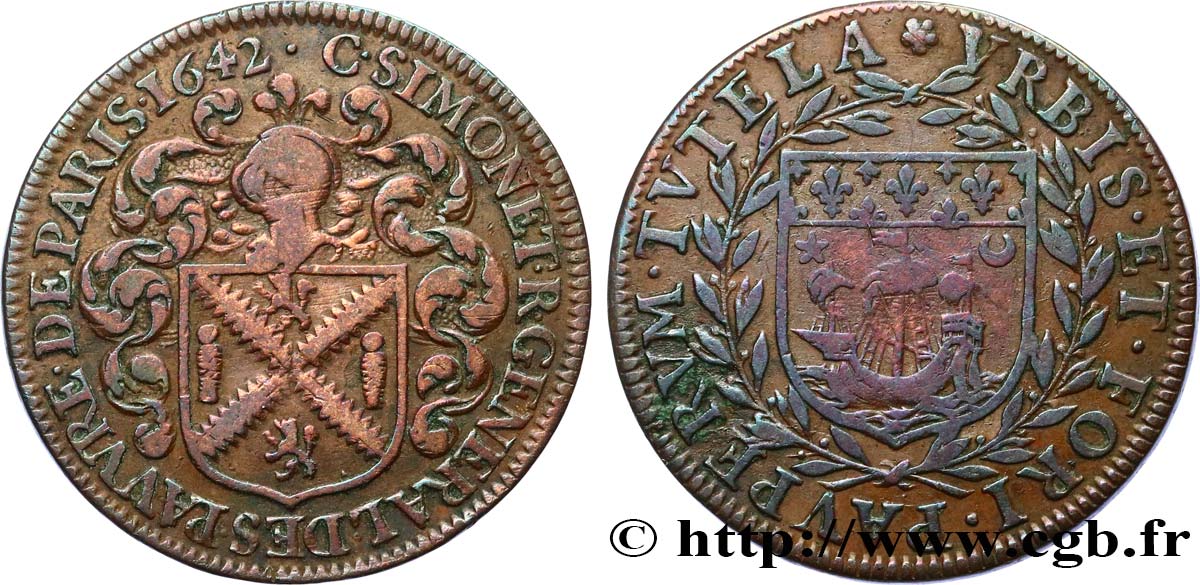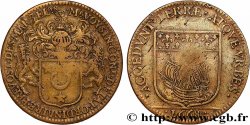fjt_689631 - ILE DE FRANCE - TOWNS AND GENTRY C. Simonet, receveur général des pauvres 1642
недоступный.
Товар уже продан в нашем интернет-магазине (2021)
Цена: : 18.00 €
Товар уже продан в нашем интернет-магазине (2021)
Цена: : 18.00 €
Тип C. Simonet, receveur général des pauvres
Дата: 1642
Металл: red copper
Диаметр: 27 mm
Ориентация осей монеты: 6 h.
Вес: 5,76 g.
Век: lisse
Ссылки в каталоге: :
Лицевая сторона
Аверс: легенда: C SIMONET R GENERAL DES PAVVRES DE PARIS 1642.
Аверс: описание: Armes de C. Simonet lambrequinées.
Обратная сторона
Реверс: легенда: VRBIS ET FORI PAVPERVM TVTELA.
Реверс: Описание: Armes de Paris.
Реверс: перевод: La protection des pauvres de la ville et de la voie publique.
Комментарий
En 1544, l'administration des pauvres de la ville de Paris fut confié à un Bureau des pauvres: l'administration publique relayait ainsi le clergé dans le rôle d'assistance aux plus démunis. Ce bureau était composé de six membres du Parlement, six avocats, un conseiller à la Chambre des comptes, deux chanoines, trois curés, quatre procureurs au Châtelet et seize notables. Parmi les bourgeois les plus riches était choisi un receveur des pauvres, élu pour deux années et chargé de lever les diverses taxes établies à cet usage.
In 1544, the administration of the poor in the city of Paris was entrusted to a Bureau of the Poor: the public administration thus replaced the clergy in the role of assisting the most destitute. This bureau was composed of six members of Parliament, six lawyers, a councilor at the Chamber of Accounts, two canons, three curates, four prosecutors at the Châtelet and sixteen notables. From among the richest bourgeois was chosen a receiver of the poor, elected for two years and responsible for levying the various taxes established for this purpose
In 1544, the administration of the poor in the city of Paris was entrusted to a Bureau of the Poor: the public administration thus replaced the clergy in the role of assisting the most destitute. This bureau was composed of six members of Parliament, six lawyers, a councilor at the Chamber of Accounts, two canons, three curates, four prosecutors at the Châtelet and sixteen notables. From among the richest bourgeois was chosen a receiver of the poor, elected for two years and responsible for levying the various taxes established for this purpose








 Cообщить об ошибке
Cообщить об ошибке Распечатать страницу
Распечатать страницу Отправить мой выбор
Отправить мой выбор Задать вопрос
Задать вопрос Consign / sell
Consign / sell
 Информация
Информация















